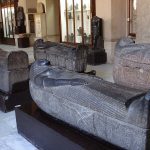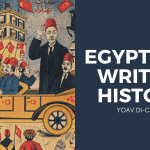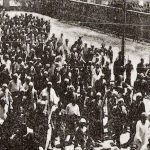by Yoav di-Capua
Almost eight months to the day after the ouster of President Mubarak on February 11th another dramatic set of events set Cairo ablaze. This time, it was not the “people” who were pushing against a corrupt regime but unidentified forces that pushed the army, the riot police, the plainclothes police and some of the 165,000 gangsters who were previously employed by Mubarak (and apparently were still on someone’s payroll), to violently attack a peaceful Coptic Christian demonstration. By the end of a long day, 25 Christian protestors were confirmed dead and dozens were wounded. Three soldiers found their deaths as well though their names and pictures were never released. Sunday, October 9th became Egypt’s “Bloody Sunday.” “What exactly happened,” writes journalist and blogger Yasmine El Rashidi, in a moving post, “when, amid a great deal of confusion, a peaceful protest turned into something of a massacre, has become a question of enormous implications” for Egypt’s transition towards civic democratic life.
Indeed, this transition, or what some already skeptically call the mirage of transition, has increasingly become the object of severe doubt. And much of this doubt is directed toward Egypt’s de facto ruling authority; the Supreme Council of the Armed Forces. Though a civic interim government is charged with the everyday business of Egyptian life, all major decisions, as well as the general political tone of the state, is determined by hitherto anonymous military officers. As such, they are almost solely responsible for the nature, direction and overall success of the transition. This is hardly an easy task, as the very meaning of transition is still shrouded in mystery and raises far more questions than it answers. 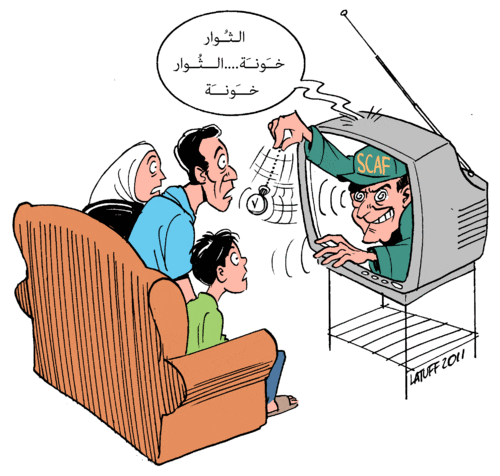 “The revolutionaries are traitors, The revolutionaries are traitors.” This cartoon shows Field Marshal Mohamed Hussein (Tantawi), head of Egypt’s Supreme Council of the Armed Forces, using state media in order to incite against the revolutionary forces.
“The revolutionaries are traitors, The revolutionaries are traitors.” This cartoon shows Field Marshal Mohamed Hussein (Tantawi), head of Egypt’s Supreme Council of the Armed Forces, using state media in order to incite against the revolutionary forces.
Here is a partial list of what is publicly at stake since the fall of the previous regime. First, Egyptians are struggling with the traditional, or chronic, issue of social justice. This question has been the subject of politics for much of the previous century and it is still unresolved as levels of poverty and social inequality continue to rise and expand. The quest for better wealth distribution, social equality, opportunity, and mobility opened the nature of the post-revolutionary economic system for debate. In the last half century, Egypt has already experimented with radical socialism and deep neo-liberalism, both of which failed miserably. Which ideas should inform the next economic agenda? Should the reliance on elite capitalism and its global partners should be swapped for a different order, and if so which one? Most problematically, how precisely to accomplish an orderly economic transition when the military industrial complex is the largest economic sector and the chief benefactor of decades of a neo-liberal orientation?
A second concern is how to institute human dignity and the various democratic freedoms that guarantee it, such as freedom of expression and political association, the right to a just trial, transparency and accountability in public affairs, and the end of police brutality and abuse. In theory, there is a sweeping consensus in support of these rights and safeguards. In practice, beyond laws, the entire political and bureaucratic culture of the state would need to be transformed. As Egyptians have discovered since February 11th this is challenge as enormous as it is elusive.
Third, and most sensitive, is the relationship between church and state, or, put differently, the cultural orientation of Egypt. Should Egypt become an Islamic state, a Western-oriented liberal democracy or some combination of the two? And related to this, should the Islamic legal code, or Sharia, dominate legislature or should it be a flexible, man-made civic legal code? Likely, as most commentators predict, the choice is not between two polar opposites but rather something resembling a healthy and constructive dialectic between the two. But how exactly should this dialectic occur? No one knows. The current process of transition stipulated that following a lengthy process of national elections (which would stretch from November 2011 to March 2012) a new Parliament will draft a new constitution which, in turn, will bring these concerns toward successful resolution. But, rather than reducing the level of anxiety, the lengthy constitutional process ahead only raises it. Especially concerned are the roughly nine million Coptic Christians (about 10% of the Egypt’s population) and the liberal forces that started the revolution in the first place. They have their reasons.
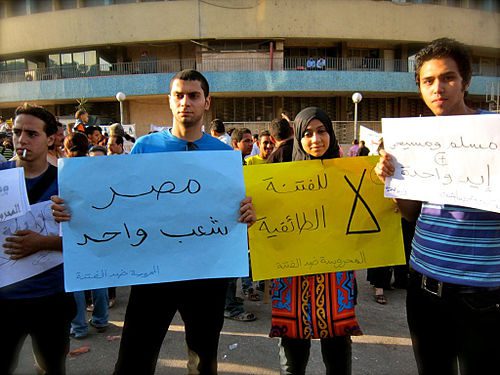 Calls for unity during the spring demonstrations. The posters read: “No to sectarian war” and “Egypt: A United People”
Calls for unity during the spring demonstrations. The posters read: “No to sectarian war” and “Egypt: A United People”
Seven months ago, in order to legalize the actions of the interim government and the Supreme Council of the Armed Forces, Egyptians participated in a national referendum to amend the previous constitution. The Copts and the liberals demanded the wholesale discarding of the old constitution, wishing to declare it null and void. It is a constitution that viewed the Sharia as a major source of legislation and which was, historically, instrumental in turning the Copts into second-class citizens. Yet, following the recommendation of a specially nominated constitutional committee headed by a neo-Islamist judge, the old constitution prevailed, a few obviously undemocratic articles were tossed away and the Copts and liberals lost the referendum by a landslide. Backed by the army, reformist Islamists, as well as conservative Islamists, radical Salafis (fundamentalists) and other ordinary Muslim citizens, triumphed. To one degree or another, the next constitution will most likely be Islamically-oriented.
Though this fact, in and of itself, is not necessarily a cause for concern, especially when the transition in Tunisia seems to point towards a moderate and democratic Islamic option, Coptic suspicion nonetheless runs high since the lost referendum. Indeed, the marginalized status of the Coptic community serves as a constant reminder that the Muslim-Christian unity which made this revolution happen is fragile and that national unity is at stake. The smoke of several churches burned since the revolution is still in the air. On September 30th, another Coptic church, this time in the southern city of Aswan, was set on fire. The unfortunate events of “Bloody Sunday” were meant to be a collective and peaceful expression of Coptic anxiety and a plea for government and army action against Islamic fundamentalists. Yet, instead of assuring the Copts and their liberal allies that the transitional process would conclude to their relative satisfaction, the army made things considerably worse. This dent in the transitional process brings many to conclude that the forces of counterrevolution are in full swing and that, eight months after Mubarak’s fall, hardly any major institution of the previous regime has been meaningfully challenged. Instead, one can identify more structural, if not personal, continuity than change. The revolutionaries are surely tired, but it looks like their real work has not even begun yet. The first round of parliamentary elections, scheduled for late November, will take place amidst this atmosphere of suspicion, fatigue and a prevailing sense of the army’s betrayal.
Photo Credits:
Cartoon by Carlos Latuff, July 23, 2011, TwitPic via Wikimedia Commons
Photo by Gigi Ibrahim via Wikimedia Commons
